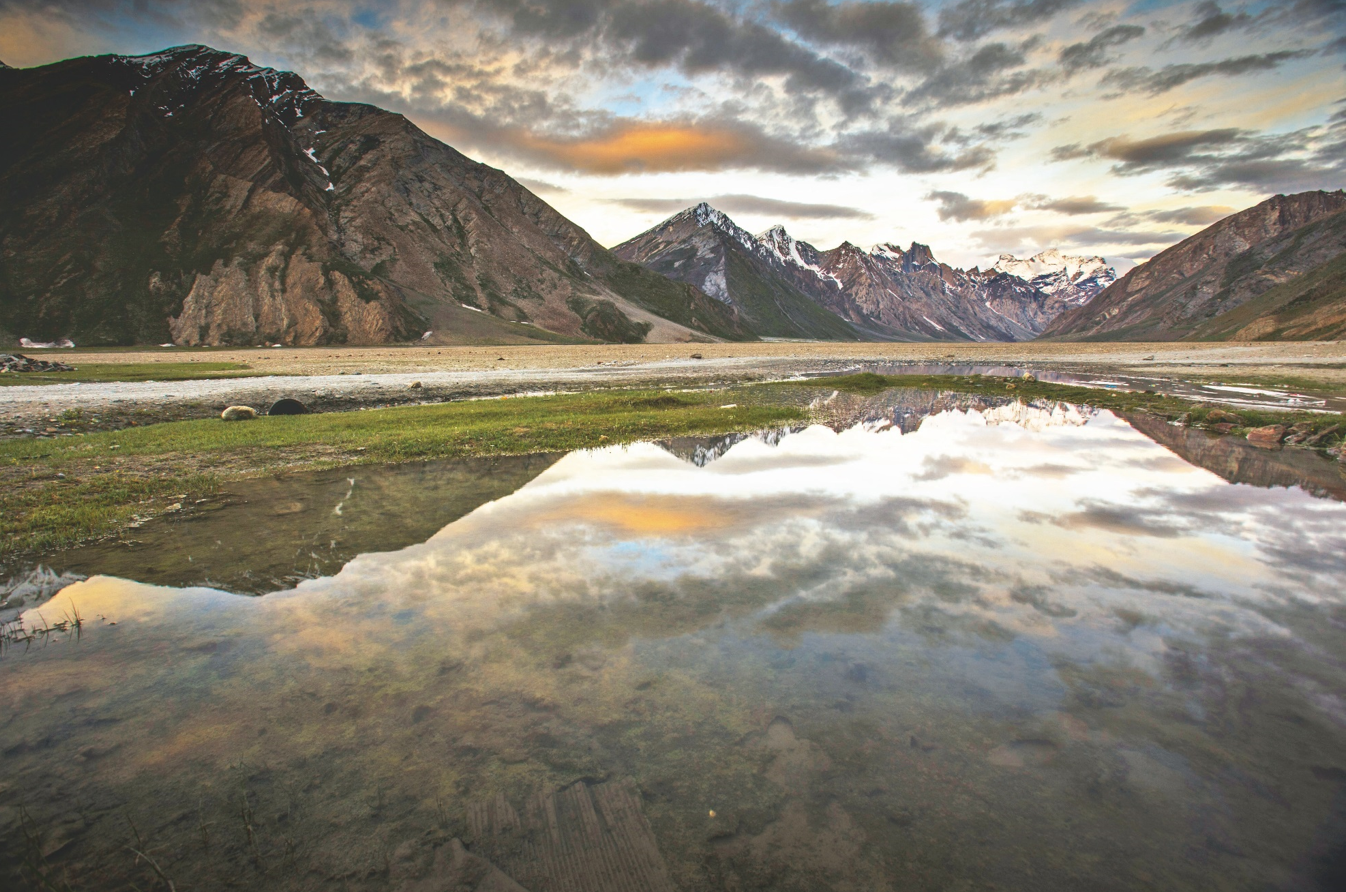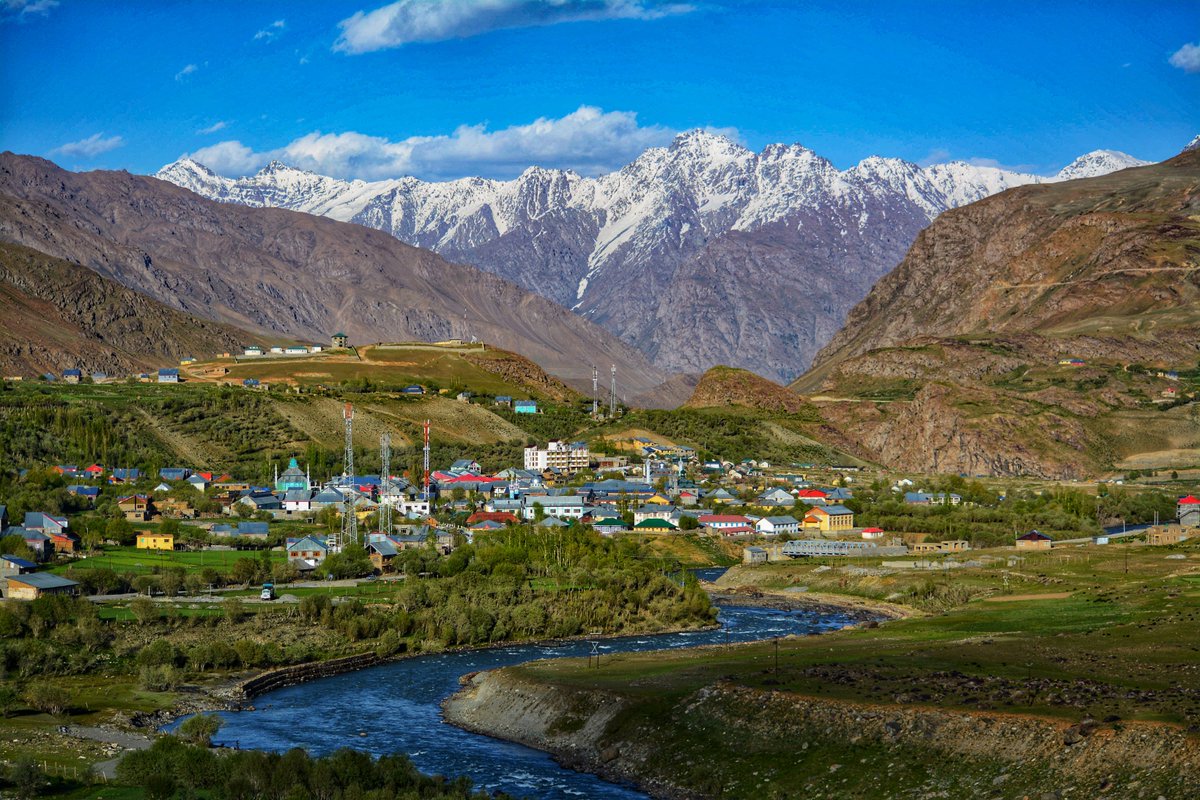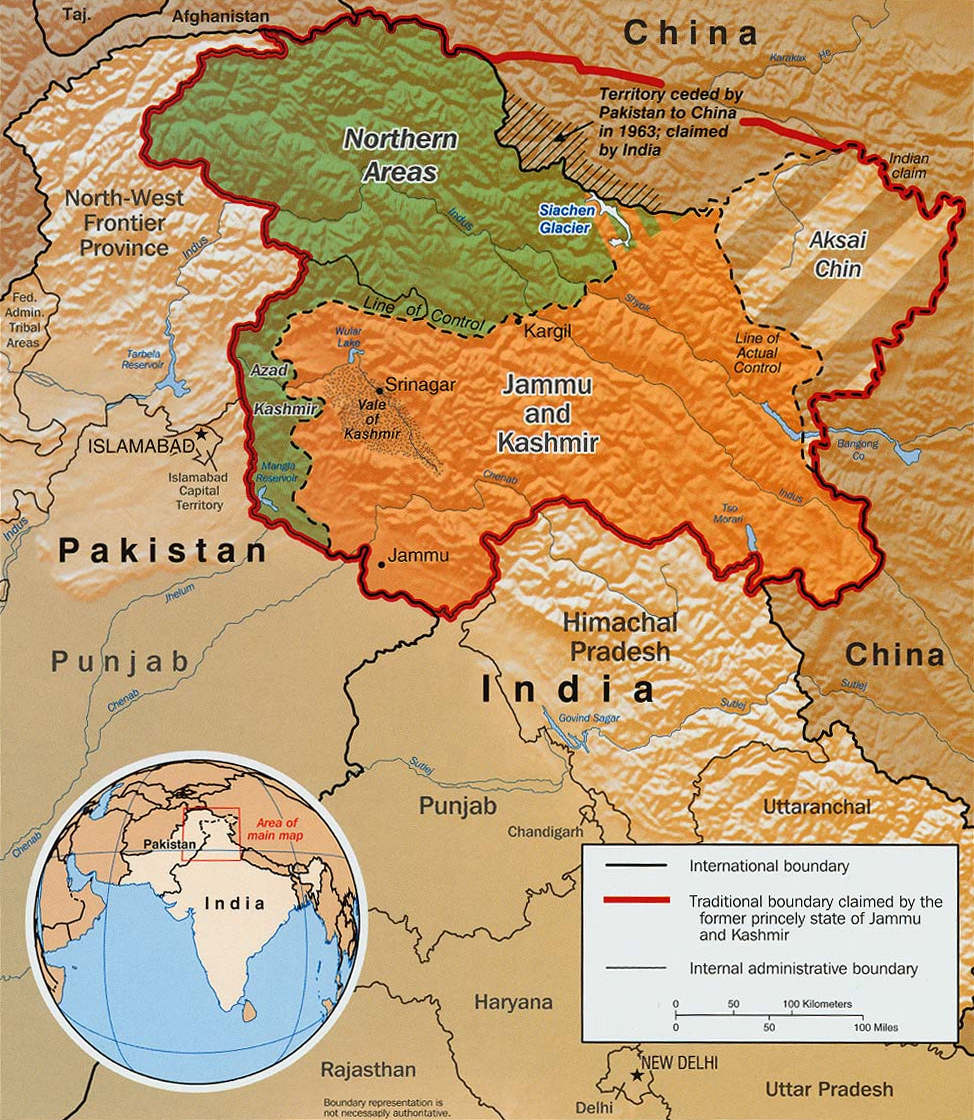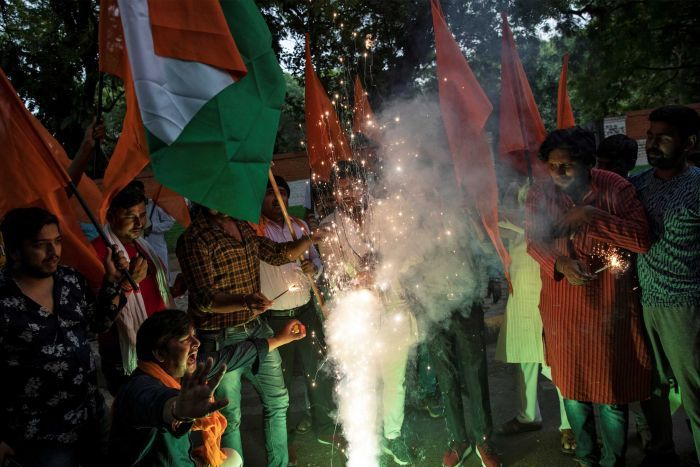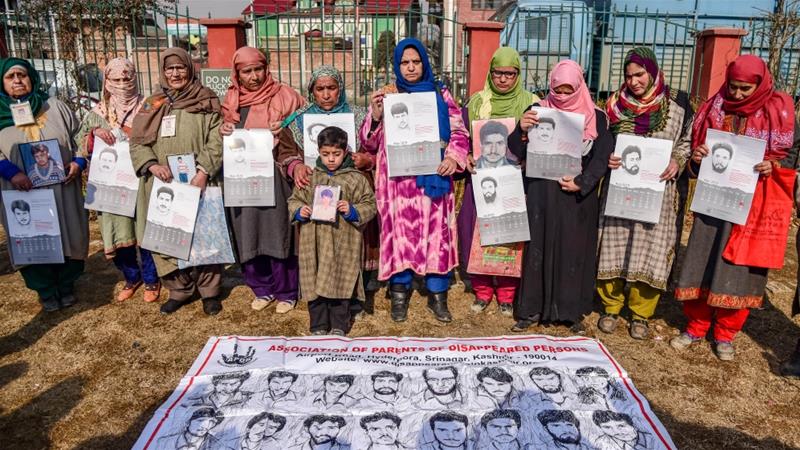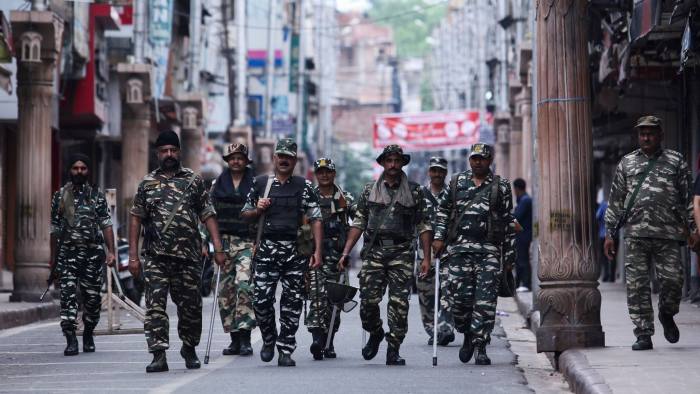Kashmir: A Hell in Paradise
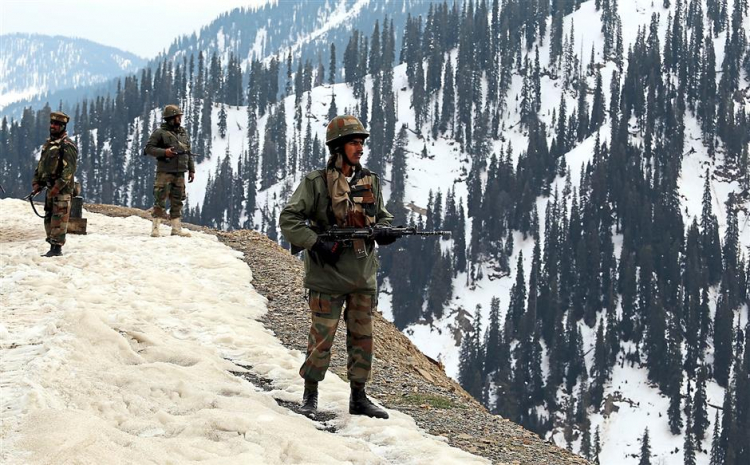
In a land derailed by time, there once was a king who ruled a province located at the border of a newly formed country, Pakistan, and it's old counterpart India. The land, Kashmir has been the central cause for five wars, and is currently at the flashpoint of a nuclear face-off between the two rivals.
“I am anti-war but what I said clearly was that when two nuclear-armed countries fight - if they fight a conventional war - there is every possibility to end up in a nuclear war," said Imran Khan, Prime Minister of Pakistan to Al Jazeera.
Kashmir is a region in South Asia, located between India, Pakistan, Afghanistan and China. It is nestled in the Himalayas and has many beautiful rivers, such as the Indus river which flows through it. One of India’s most famous Sufi poets, Amir Khusrow once, said the following about Kashmir: "Agar firdaus bar roo-e zameen ast, Hameen ast-o hameen ast-o hameen ast. " which translates in English to "If there is a heaven on earth, it is this, it is this, it is this!"
Zanskar Valley, Ladakh, Jammu and Kashmir. Image Credit: Indian Government for Tourism
Town of Dras, Jammu and Kashmir, India. Image Credit: Jammu and Kashmir Tourism
Unfortunately, this beautiful land is now referred to as hell in paradise by many of its residents. The dispute that brought about this change in Kashmir started at the brink of India's partition and the formation of Pakistan. As India split in two during the 1947 partition, the princely territories that shared land within both the countries were free to either join Pakistan, majority Muslim, or stay in India, majority Hindu. Due to the unprecedented nature of Kashmir's Hindu King, Hari Singh, ruling a majority Muslim region, he decided to stay neutral in order to avoid mutiny.
As a result, Pakistan sent its tribesmen and troops to overthrow Singh and make the region a part of Pakistan. Singh fled to India and signed the ‘Instrument of Accession’, on October 26th 1947, ceding Kashmir to India in exchange for Indian military protection against Pakistan. This resulted in the first Indo-Pakistani War.
India then involved the United Nations’ Security Council on January 1948, which brought forth Resolution 47. Its conclusion stated that Pakistan must remove its troops from Kashmir, after which India was to keep their military presence to a bare minimum. Pakistan refused to comply, this led to three more wars breaking through in the future. On January 1949, the United Nations mediated a ceasefire between the two nations, leading to the Line of Control, which remains to be the de facto border till today.
Kashmir maps and its Line of Control. Image Credit: Central Intelligence Agency.
Article 370
In 1952 India administered Kashmir formed Article 370, a controversial amendment. It gave the state autonomous right, which means they were capable of forming their own laws for all matters except finance, defense, foreign affairs and communication. This meant the state had its own constitution, flag and it also forbids non-Kashmiris from owning property or business in the region.
In August 2019 the Article was revoked by the current right-wing Hindu nationalist ruling party of India, the Bharatiya Janata Party (BJP).
People dance with firecrackers on the streets of New Delhi to celebrate the announcement that Article 370 will be revoked. Image Credit: Danish Siddiqui
The abolishment of the article now allows outsiders the ability to buy land and settle in the state. This has led to claims that the Indian government is attempting to shift the Muslim majority demographic to a Hindu majority in the region. Many Kashmiris fear that this might change their culture and way of life.
Dibyesh Anand, a social scientist at the University of Westminster, said: "The fear of settler colonialism is not a spectre but a reality; given the approach of both the government and a large number of Indians."
AFSPA
Decades earlier, In 1987 Kashmir went through an alleged rigged election which took seats away from the main Muslim party. This led to protests and a 100 dead through police push back. Following this, a movement for pro-independence insurgency led by the Jammu and Kashmir Liberation Front (JKLF) grew stronger. As a result, India implemented the Armed Forces Special Power Act (AFSPA) in 1990, which was a counter-insurgency measure to combat the many Kashmiris who armed themselves and echoed pro-Kashmiri independence sentiments, calling for a separate sovereign state. The insurgency continued and Kashmiri militants crossed the border to train in Pakistan as India deployed hundreds of thousands of more troops into Kashmir. Violence against civilians by both sides was widespread.
In recent times, JKLF, the anti-India organization, faded away giving power to Lashkar-e-Taiba, a pro-Pakistan terrorist group, which is trying to merge India administered Kashmir into Pakistan. India has claimed that Pakistan is funding and training this organization, causing severe conflicts between the nations.
AFSPA used to combat the insurgency and there is an amendment within the act that prohibits the prosecution of security force personnel, which includes the military and police. AFSPA states that only the government of India can grant prior permission or “sanctions” in order to prosecute any security forces in the region. Regardless of that caveat, no armed force personnel has ever been prosecuted in the 30 years, since AFSPA was passed. A United Nations human rights report states that the act essentially gives security forces "virtual immunity" against prosecution for any human rights violations.
A 43-page report by the Office of the UN High Commissioner for Human Rights (OHCHR), released on July 8, 2019, showcases serious concerns about abuses by the armed forces in Kashmir. The report found armed forces committed acts of unjust killings, disappearances and sexual violence against Kashmiris. Two rights bodies wrote in a 560-page report that solitary confinement, sleep deprivation and sexualized torture including rape and sodomy were used against Kashmiris. Association of Parents of Disappeared Persons (APDP) reports that at least 8,000 people have disappeared since 1989, with thousands of mass graves spread throughout the territory. In 2012, award-winning human rights lawyer, Parvez Imroz, and his field workers commenced the first statewide study of torture in Kashmir, which concluded that torture is a major endemic and systematic issue within Kashmir. The report suggests that one in six Kashmiris have faced torture.
The UN Human Rights Chief has called for a Commission of Inquiry (COI), which is the UN's highest-level probe, reserved for major crises to be conducted within Kashmir. Furthermore, AFSPA has been called unjust, unethical and a failure to democracy by the UN.
Families of disappeared people hold calendars in protest. Image Credit: Idrees Abbas, Getty Pictures
Kashmir Under Lockdown
After Article 370 got revoked by the central government, Kashmir has been under a complete lockdown. Jeeps roam the streets with massive speakers asserting citizens to stay in their home as the lockdown has continued for over two months. India has banned mobile phones and internet services while a curfew has also been set in place. Kashmiris are in fear of both money and food shortages. Several protesters have been killed, while journalists and activists fear for their safety. Thousands, including children, have been detained and molested by the troops in Indian-administered Kashmir.
Indian Armed Forces enforce curfew in Kashmir. Image Credit: AFP
Narendra Modi, the Prime Minister of India, calls the move to revoke Article 370 a "new era" for Kashmir. He said Article 370 was an "obstacle" to the region's development and said Kashmir will be free from "terrorism and separatism."
As many Indians outside of Kashmir are happy with the decision, foreign nations such as China, UK, Pakistan and others condemn India's move. India has been implored by foreign governments to reduce it's clasp on Kashmir, especially as Pakistan's retaliation over the matter has grown into major concerns of another war between the two nuclear-power countries.

